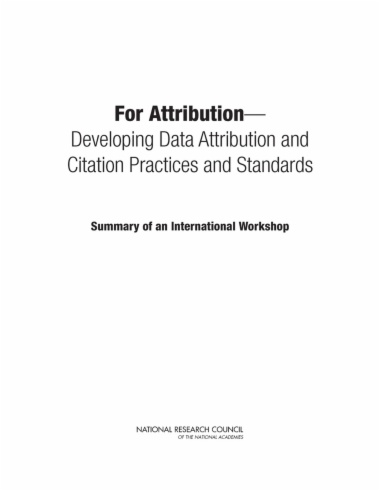

The growth of electronic publishing of literature has created new challenges, such as the need for mechanisms for citing online references in ways that can assure discoverability and retrieval for many years into the future. The growth in online datasets presents related, yet more complex challenges. It depends upon the ability to reliably identify, locate, access, interpret, and verify the version, integrity, and provenance of digital datasets. Data citation standards and good practices can form the basis for increased incentives, recognition, and rewards for scientific data activities that in many cases are currently lacking in many fields of research. The rapidly-expanding universe of online digital data holds the promise of allowing peer-examination and review of conclusions or analysis based on experimental or observational data, the integration of data into new forms of scholarly publishing, and the ability for subsequent users to make new and unforeseen uses and analyses of the same data-either in isolation, or in combination with, other datasets.
The problem of citing online data is complicated by the lack of established practices for referring to portions or subsets of data. There are a number of initiatives in different organizations, countries, and disciplines already underway. An important set of technical and policy approaches have already been launched by the U.S. National Information Standards Organization (NISO) and other standards bodies regarding persistent identifiers and online linking.
The workshop summarized in For Attribution—Developing Data Attribution and Citation Practices and Standards: Summary of an International Workshop was organized by a steering committee under the National Research Council's (NRC's) Board on Research Data and Information, in collaboration with an international CODATA-ICSTI Task Group on Data Citation Standards and Practices. The purpose of the symposium was to examine a number of key issues related to data identification, attribution, citation, and linking to help coordinate activities in this area internationally, and to promote common practices and standards in the scientific community.